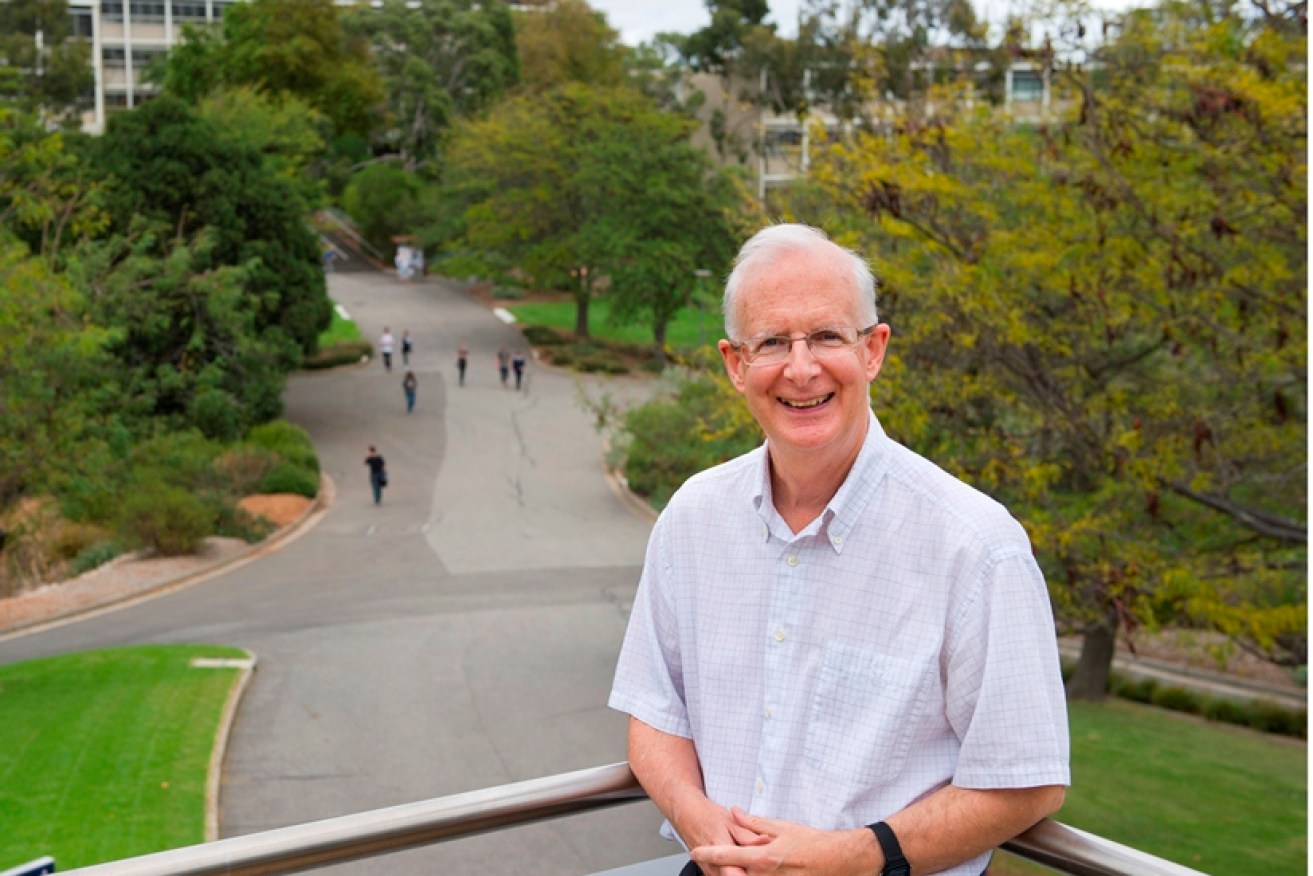
Canadian expert reviews SA’s water management

Professor Bruce Mitchell is working at Flinders under the ANZSOG-Goyder Institute Visiting Professors Program
When Professor Bruce Mitchell addresses a new group of students at the start of each year, he shares this sobering fact:
“An adult of average health in normal living conditions is dead in 72 hours if they don’t have water. Humans can survive a bit longer without food but water of sufficient quantity and quality is an absolute necessity in our lives,” he tells his students.
An expert in integrated water resource management, Professor Mitchell is on leave from his usual position in the Department of Geography and Environmental Management at the University of Waterloo, Canada, for a three month professorship at Flinders University under the ANZSOG-Goyder Institute Visiting Professors Program in Public Sector Policy and Management.
A partnership between Flinders University, the Australia and New Zealand School of Government (ANZSOG) and the Goyder Institute for Water Research, the program aims to develop the nation’s knowledge and skills in the policy and management of finite resources, particularly water, while aligning with the priorities of the South Australian Government.
Hosted by the Faculty of Social and Behavioural Sciences, Professor Mitchell is conducting a review of SA’s integrated water management approach since the early ‘90s, and will write a report for the Goyder Institute when he returns to Canada at the end of his tenure next month.
Specifically, he is analysing the merits and drawbacks of three approaches adopted by the State Government to manage SA’s water and selected related natural resources, from the advent of specific advisory committees in the 1990s to the current model of larger natural resource management boards, which have responsibility for a mix of natural resources.
“Until the mid ‘90s SA had advisory committees, so if there were problems in a shared water system the Environment Minister would form an advisory committee to provide advice about the issue,” Professor Mitchell says.
“From 1995, catchment water management boards co-existed with plant, animal control and soil conservation boards but when the Natural Resources Management Act was passed in 2004, the catchment boards, plant and animal boards and soil boards amalgamated into one organisation,” he said.
“The boards went from about 60 separate entities down to eight, which was viewed as a step towards efficiency.”
Since arriving at Flinders in January, Professor Mitchell has met with more than 60 people, including State and local government representatives, members of natural resource management boards, agriculture and environment groups, politicians, consultants, farmers and landowners.
While it is too early to draw conclusions about SA’s water management approach, he believes there are both strengths and limitations in the State’s current approach.
Professor Mitchell says another objective of his research is to understand key factors that facilitate or impede plans from being implemented, and what can be done to achieve more effective implementation.
Professor Mitchell’s appointment is the second in the ANZSOG-Goyder Institute Visiting Professors Program, following Professor Steve Rayner who joined Flinders from Oxford University in the UK from November 2013 to February 2014. During his term, Professor Rayner investigated how weather and climate information can be used in water management.




